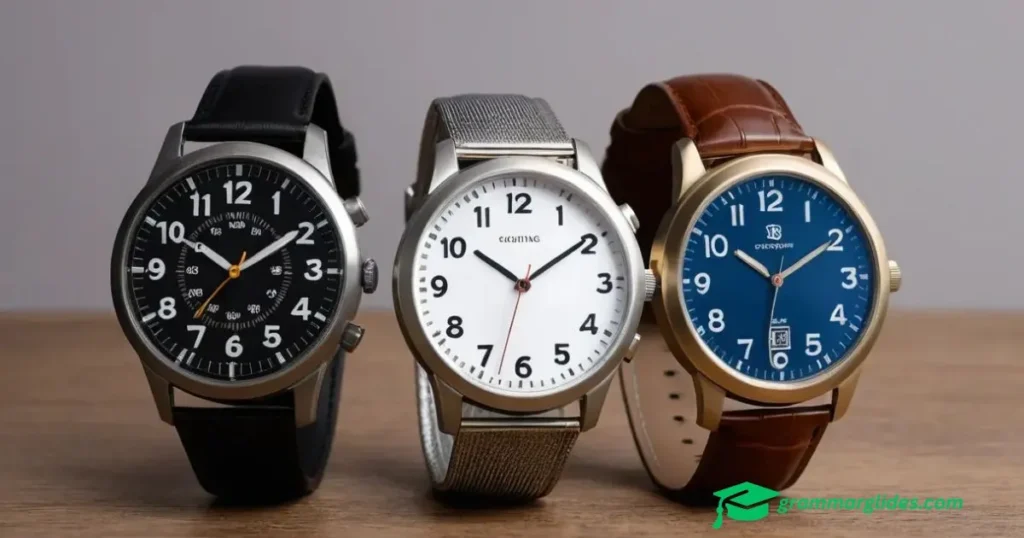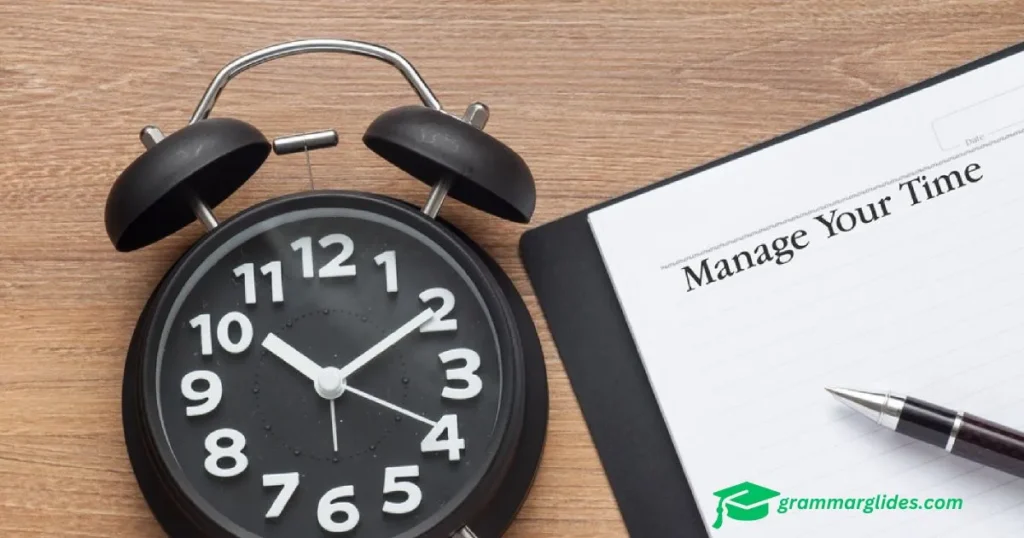“The best moments happen when we coordinate our time!”
Finding the right time for meetings or gatherings can make all the difference in our busy lives. It’s important to ask others about their availability without sounding too formal or repetitive.
Having a variety of ways to ask about someone’s preferred time can help keep communication friendly and engaging. In this blog post, we will explore 35 other ways to say “What time works best for you?”
Now, whether you’re scheduling a business meeting, planning a coffee catch-up with a friend, or organizing an event, you can choose from these expressions to sound more casual and approachable. These alternatives will make your communication feel more personal and sincere.
As you read through the options, remember to use the phrases that fit the context and the relationship you have with the person. Let’s dive in!
1. “What time is good for you?”
Scenario: You’re trying to set a meeting with a coworker.
Example 1: You send a message saying, “What time is good for you to discuss the project?”
Example 2: In a face-to-face conversation, you might ask, “What time is good for you to grab lunch together?”
Explanation: This is a straightforward and friendly way to ask about someone’s availability, making it easy for them to respond.
2. “When can we meet?”
Scenario: You’re organizing a team meeting.
Example 1: You say, “When can we meet to finalize the details?”
Example 2: If you’re arranging a catch-up, you might ask, “When can we meet for coffee next week?”
Explanation: This phrase is direct and clear, helping to move the planning process forward.
3. “What’s your availability like?”
Scenario: When coordinating schedules with a colleague.
Example 1: You might ask, “What’s your availability like this week for a quick chat?”
Example 2: If planning an event, you can say, “What’s your availability like for the dinner on Friday?”
Explanation: This expression opens up the conversation for a range of times, allowing for flexibility.
4. “What time suits you?”

Scenario: When scheduling a conference call.
Example 1: You ask, “What time suits you best for the call?”
Example 2: If meeting a friend, you might say, “What time suits you for our movie night?”
Explanation: This phrase conveys respect for the other person’s schedule and preferences.
5. “When works for you?”
Scenario: After discussing plans with friends.
Example 1: You say, “When works for you to get together this weekend?”
Example 2: If scheduling with a client, you might ask, “When works for you for our meeting?”
Explanation: This casual expression is easy to understand and feels relaxed.
6. “What time do you prefer?”
Scenario: When arranging a lunch date.
Example 1: You ask, “What time do you prefer to meet for lunch?”
Example 2: If coordinating a family gathering, you might say, “What time do you prefer for the get-together?”
Explanation: This phrase encourages the other person to express their preferences directly.
7. “Can you share your preferred time?”
Scenario: When setting up a training session.
Example 1: You say, “Can you share your preferred time for the training?”
Example 2: If scheduling a follow-up meeting, you might ask, “Can you share your preferred time for next week?”
Explanation: This expression highlights the importance of the other person’s choice, making them feel valued.
8. “What time is best for you?”
Scenario: When arranging a catch-up.
Example 1: You ask, “What time is best for you to meet?”
Example 2: If trying to find a time to discuss plans, you might say, “What time is best for you this week?”
Explanation: This question is direct and considerate, focusing on the other person’s convenience.
9. “What time do you want to meet?”
Scenario: When confirming plans.
Example 1: You ask, “What time do you want to meet for dinner?”
Example 2: If checking in with a colleague, you might say, “What time do you want to meet to discuss the project?”
Explanation: This phrasing is informal and friendly, making it easy for others to respond.
10. “When are you free?”
Scenario: While planning a group outing.
Example 1: You might ask, “When are you free to join us for a hike?”
Example 2: If scheduling a meeting, you could say, “When are you free this week to review the report?”
Explanation: This question is open-ended, allowing the other person to consider various options.
11. “What works for your schedule?”
Scenario: When arranging a team meeting.
Example 1: You might say, “What works for your schedule for the presentation?”
Example 2: If coordinating with a friend, you could ask, “What works for your schedule to meet up this weekend?”
Explanation: This phrase shows that you value their time and are willing to accommodate their schedule.
12. “Do you have a time in mind?”
Scenario: When setting a date for a business meeting.
Example 1: You ask, “Do you have a time in mind for our meeting?”
Example 2: If planning a catch-up, you might say, “Do you have a time in mind for coffee this week?”
Explanation: This question invites the other person to suggest a specific time, making scheduling easier.
13. “How does your schedule look?”
Scenario: When discussing future plans.
Example 1: You say, “How does your schedule look for next week?”
Example 2: If arranging a group meeting, you might ask, “How does your schedule look for the team discussion?”
Explanation: This phrase prompts the other person to evaluate their availability while keeping it casual.
14. “When can we catch up?”

Scenario: After a busy week with friends.
Example 1: You ask, “When can we catch up over coffee?”
Example 2: If discussing a project, you might say, “When can we catch up to go over the details?”
Explanation: This question suggests a friendly tone, making it sound more inviting.
15. “Is there a time that works for you?”
Scenario: When finalizing a schedule with a team.
Example 1: You might say, “Is there a time that works for you for our meeting?”
Example 2: If coordinating with a friend, you could ask, “Is there a time that works for you for lunch?”
Explanation: This phrase respects the other person’s preferences and promotes a collaborative approach.
16. “Can we agree on a time?”
Scenario: When trying to finalize plans.
Example 1: You ask, “Can we agree on a time for our next meeting?”
Example 2: If arranging a family gathering, you might say, “Can we agree on a time for dinner?”
Explanation: This expression implies teamwork and encourages finding a mutually suitable time.
Other ways to say “Roast lines for skinny people”
17. “What do you think works?”
Scenario: When brainstorming a schedule.
Example 1: You say, “What do you think works for our meeting next week?”
Example 2: If discussing a project timeline, you might ask, “What do you think works for our deadline?”
Explanation: This question invites input, making it feel more collaborative.
18. “Is there a time that suits you?”
Scenario: When discussing a one-on-one meeting.
Example 1: You ask, “Is there a time that suits you for our catch-up?”
Example 2: If coordinating a client meeting, you might say, “Is there a time that suits you for the presentation?”
Explanation: This phrase shows consideration for the other person’s preferences.
19. “When are you available?”
Scenario: When setting up a group project meeting.
Example 1: You ask, “When are you available to start the discussion?”
Example 2: If checking in with a friend, you might say, “When are you available to catch a movie?”
Explanation: This is a clear and straightforward question that encourages a specific response.
20. “What time works for you?”
Scenario: After discussing a potential meeting.
Example 1: You might say, “What time works for you to meet this week?”
Example 2: If coordinating with a friend, you could ask, “What time works for you for our hike?”
Explanation: This phrase is easy to understand and directly addresses the person’s schedule.
21. “Can we pin down a time?”
Scenario: When finalizing meeting arrangements.
Example 1: You say, “Can we pin down a time for our discussion?”
Example 2: If scheduling a team meeting, you might ask, “Can we pin down a time that works for everyone?”
Explanation: This phrase suggests a focus on achieving a definite agreement.
22. “What’s a good time for you?”
Scenario: When setting plans with colleagues.
Example 1: You ask, “What’s a good time for you to discuss the new project?”
Example 2: If trying to meet up with a friend, you might say, “What’s a good time for you to go out for dinner?”
Explanation: This expression offers flexibility and encourages the other person to suggest times.
23. “How does this time sound?”

Scenario: When proposing a specific time for a meeting.
Example 1: You say, “How does this time sound for our call?”
Example 2: If scheduling a lunch, you might ask, “How does this time sound for our meetup?”
Explanation: This question allows the other person to agree or suggest alternatives, making it collaborative.
24. “When do you have a moment?”
Scenario: When trying to discuss something important.
Example 1: You ask, “When do you have a moment to chat about the project?”
Example 2: If talking to a friend, you might say, “When do you have a moment to catch up?”
Explanation: This phrase conveys urgency while respecting the other person’s time.
25. “What would work for you?”
Scenario: When brainstorming meeting times.
Example 1: You ask, “What would work for you for our next meeting?”
Example 2: If trying to find a time to hang out, you might say, “What would work for you for a movie night?”
Explanation: This question emphasizes cooperation and invites the other person’s input.
26. “Do you have a time that fits?”
Scenario: When scheduling a discussion.
Example 1: You ask, “Do you have a time that fits your schedule for our meeting?”
Example 2: If coordinating with a friend, you might say, “Do you have a time that fits for our catch-up?”
Explanation: This phrase shows consideration for the other person’s availability.
27. “What time would be best?”
Scenario: When trying to finalize plans.
Example 1: You ask, “What time would be best for our discussion?”
Example 2: If meeting a colleague, you might say, “What time would be best for a quick chat?”
Explanation: This question is straightforward and prioritizes the other person’s preferences.
28. “Is there a time you prefer?”
Scenario: When coordinating a team meeting.
Example 1: You ask, “Is there a time you prefer for our meeting this week?”
Example 2: If setting plans with a friend, you might say, “Is there a time you prefer to get together?”
Explanation: This phrase encourages the other person to express their preference clearly.
Other Ways to Say “You As Well”
29. “When is good for you?”
Scenario: When making plans with family.
Example 1: You ask, “When is good for you for a family dinner?”
Example 2: If arranging a meeting with a client, you might say, “When is good for you to discuss the project?”
Explanation: This question is casual and invites open communication.
30. “What’s your best time?”

Scenario: When scheduling a work meeting.
Example 1: You ask, “What’s your best time for our team meeting?”
Example 2: If setting plans with a friend, you might say, “What’s your best time to meet up this week?”
Explanation: This expression allows the other person to share their ideal time without pressure.
Why is it important to ask about others’ preferred times?
A: Asking about others’ preferred times shows respect for their schedules and helps foster better communication, making them feel valued and more likely to engage positively.
Conclusion
In today’s fast-paced world, finding common ground on time can enhance our interactions, whether in a professional setting or among friends. Using these 35 alternatives to ask “What time works best for you?” can help you maintain a friendly tone while being efficient in your scheduling.
Each phrase not only makes your request sound more engaging but also encourages collaboration. Remember, effective communication often hinges on how we ask our questions, so embrace these expressions to create smoother conversations.

Hi! I’m Lauren Reynolds, the author of Grammar Glides. I create easy-to-follow content that helps you master English with confidence. Let’s make learning English simple and enjoyable together!

